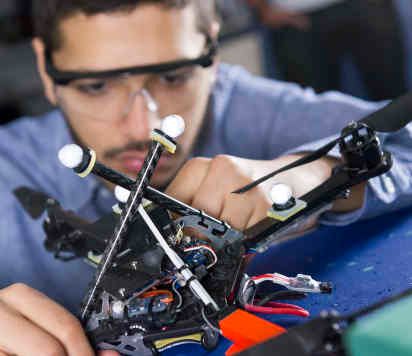The challenge
The climate emergency is possibly the greatest and most urgent challenge faced by humanity. Across the world, the warming climate is already having devastating effects, ranging from increases in wildfires and floods to climate-induced famine. These impacts will only worsen without swift and meaningful action to decarbonise our society.
Aviation is one of the most challenging areas in which to make this transition. At the current rates, CO2 emissions from the industry are anticipated to triple by 2050 – the date at which we should be reaching net-zero. Aviation also contributes to global warming due to the mix of pollutants it generates at high altitudes. And yet, flying is an important part of life that has widespread benefits. It brings people together, supports trade, research, economic growth, medical aid, internationalism, and enables connection between remote and urban areas.
While the challenge is steep, there is also opportunity. COP26 saw the International Aviation Climate Ambition Coalition agree to support measures to reduce the sector’s carbon emissions, including promoting the development of low-carbon aircraft, sustainable aviation fuels and carbon offsetting. We have a chance to not only support these measures but go beyond them, to inspire and create the further change needed to limit warming to 1.5°C by the end of the century.
Imperial's response
Translating scientific breakthroughs for societal benefit is part of Imperial’s DNA – it’s written into our founding charter and remains are guiding principle. We not only undertake highest-quality fundamental research, but also seek strategies to help deliver practical and novel solutions to the toughest problems facing humanity. The Department of Aeronautics has trained engineers since 1919 and is currently the UK’s leader in research. Each day, we apply our skills in theoretical analysis, computational modelling and experimentation to solve the key challenges facing the aerospace sector and related fields.
Imperial is taken a leading role during this critical time for aviation. We are applying our expertise in aerodynamics, materials, control, manufacturing, etc. to the challenges of net-zero aviation and we have recently inaugurated the Brahmal Vasudevan Institute for Sustainable Aviation to harness wider expertise from across the College on new propulsion systems and the world to revolutionise flight and help forge a brighter, cleaner future for all.
Developments in this technology-driven field, including new materials and novel manufacturing, design and analysis techniques, will also have impact beyond the sector itself, for example in wind turbine technology, bio-medical advances and environmental wind engineering.


